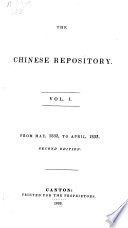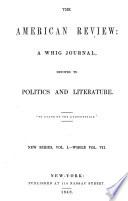 | China - 1833 - 530 pages
...or Fat kaou. The various images of Budha, they call Poo-sat, and the priests Wothfung. — Budhism in China is decried by the learned, laughed at by the profligate, yet followed bv all. FAMILY LIBRARY, Vol. XXV. The eventful History of the Mutiny of the Bounty. London, 1832. This... | |
 | 1848 - 734 pages
...men, while they admit the folly of these things, still join in them. "Buddhism," says Dr. Morrison, " in China is decried by the learned, laughed at by the profligate, yet followed by all." The priesthood have the better judgment of the people against them, and are rather feared for the mischief... | |
 | Samuel Wells Williams - China - 1848 - 682 pages
...all, and they have themselves nothing better. The result is, as Dr. Morrison has observed, " Budhism in China is decried by the learned, laughed at by the profligate, yet followed by all." The paraphrase and commentary on the seventh of Kanghi's maxims against strange religions present a... | |
 | 1848 - 722 pages
...men, while they admit the folly of these things, still join in them. "Buddhism," says Dr. Morrison, " in China is decried by the learned, laughed at by the profligate, yet followed by all." The priesthood have the better judgment of the people against them, and are rather feared for the mischief... | |
 | j.d.b. be bow - 1853 - 658 pages
...worship. Buddhism is a despised creed in China, but still it prevails everywhere, and is followed moro or less by all the Chinese. Dr. Morrison says : "...deities ; no sanguinary or impure observances; no self-inflicted tortures; no tyranni/ing priesthood : no confounding of right and wrong, by making certain... | |
 | Literature - 1857 - 528 pages
...its golden chains. In speaking of Budhism among the Chinese, Dr. Morrison lias said: " It is denied by the learned, laughed at by the profligate, yet followed by all." Certain it is, that the laut proposition is true whether the others ¡iro or not, and one who has not... | |
 | William Dean - China - 1859 - 412 pages
...found the religion of the Holy One. Instead of this they introduced into China a form of idolatry which is decried by the learned, laughed at by the profligate, yet followed by all. The third class in China are called the Tauists, or the Kationalists of the empire. Tau signifies reason,... | |
 | George Ripley, Charles Anderson Dana - Encyclopedias and dictionaries - 1873 - 832 pages
...indifferent to the diversities of religious denominations. " Buddhism in China,"' says Dr. Morrison, " is decried by the learned, laughed at by the profligate, yet followed by all." No religion is taught in the common schools. The one creed upon which all agree is the worship of deceased... | |
| |